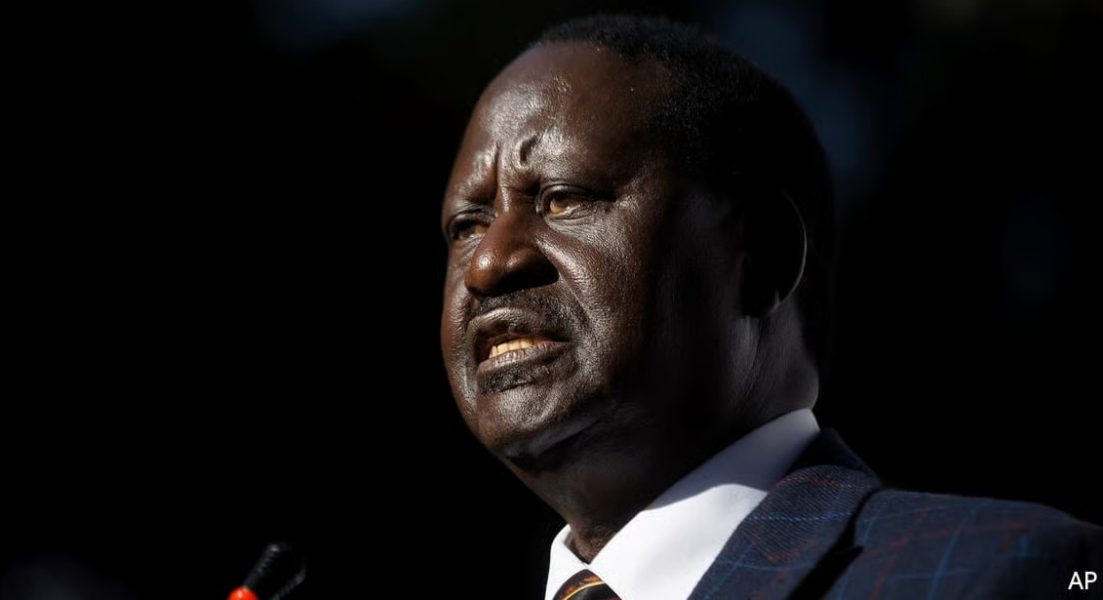
Raila Odinga, Kenya’s veteran opposition leader and a central figure in the country’s modern democratic struggle, has died at the age of 80 while receiving medical treatment in India, the government said on Wednesday.
President William Ruto, speaking in a live address, described Odinga as a “beacon of courage” and “the father of our democracy.” A seven-day period of national mourning has been declared and a state funeral with full military honours will be held, Ruto said.
Odinga collapsed during a morning walk and was taken to Devamatha Hospital near Kochi, local officials said. The hospital reported he suffered a cardiac arrest, did not respond to resuscitation and was declared dead at 09:52 local time (04:22 GMT). His body was due to be flown back to Kenya overnight, with authorities saying a delegation led by Foreign Affairs Minister Musalia Mudavadi and Odinga’s widow, Ida Odinga, would travel to India to oversee repatriation arrangements.
Funeral plans set out by officials include a state service at Nairobi’s Nyayo National Stadium on Friday, a public viewing and procession to his political base in Kisumu on Saturday, and burial on Sunday at his family farm in Bondo. The family said Odinga had wished to be buried as soon as possible, ideally within 72 hours.
Globally and across Africa, leaders paid tribute. Indian Prime Minister Narendra Modi called Odinga a “towering statesman and a cherished friend of India.” South African President Cyril Ramaphosa praised him as a leader who put his country and continent first, while Zambia’s President Hakainde Hichilema called him “a towering advocate for democracy.” Nigeria’s President Bola Tinubu said Odinga embodied the spirit of Pan-Africanism.
Parliament observed a minute’s silence on Wednesday and scheduled a special session for lawmakers to pay tribute.
A defining voice of Kenya’s multi-party era, Odinga spent much of his life in opposition and lost five presidential bids, most recently in 2022. He was widely known for his mass mobilisation, sharp political instincts and a devoted following who called him “Baba” (Father), “Agwambo” (Act of God) and “Tinga” (Tractor).
His political career was marked by confrontation with authoritarian rule and by moments of reconciliation. The disputed 2007 election — in which Odinga alleged he had been cheated of victory — sparked nationwide violence that left some 1,200 people dead and forced roughly 600,000 from their homes. A power-sharing deal brokered by former U.N. Secretary-General Kofi Annan led to a unity government in which Odinga served as prime minister.
In 2017 Kenya’s Supreme Court annulled the re-election of Uhuru Kenyatta after Odinga’s legal challenge, but Odinga then boycotted the rerun. He later reconciled with Kenyatta in a widely watched handshake in 2018 that eased political tensions. After his 2022 defeat he accepted a role in a broad-based government led by President Ruto, arguing the move was needed for national unity.
Odinga’s activism goes back decades. The son of Jaramogi Oginga Odinga, Kenya’s first vice-president, he was twice imprisoned during the rule of President Daniel arap Moi — from 1982 to 1988 and again from 1989 to 1991 — and is recorded as one of Kenya’s longest-serving detainees. His first rise to national prominence followed a failed coup attempt in 1982, after which he was detained and became a symbol of resistance to one-party rule.
He also sought regional leadership this year, receiving backing from some quarters for the chairmanship of the African Union Commission, but lost to Djibouti’s Mahmoud Ali Youssouf.
Odinga’s death leaves a large political void in Kenya. For decades he combined grassroots appeal with a persistent drive for electoral reform and human rights; both supporters and critics acknowledge his central role in shaping Kenya’s post-authoritarian politics.
Supporters gathered in large numbers in western Kenya and parts of Nairobi on Wednesday to mourn, with many laying flowers and chanting tributes to a man who, for many, defined the country’s struggle for democratic change.
